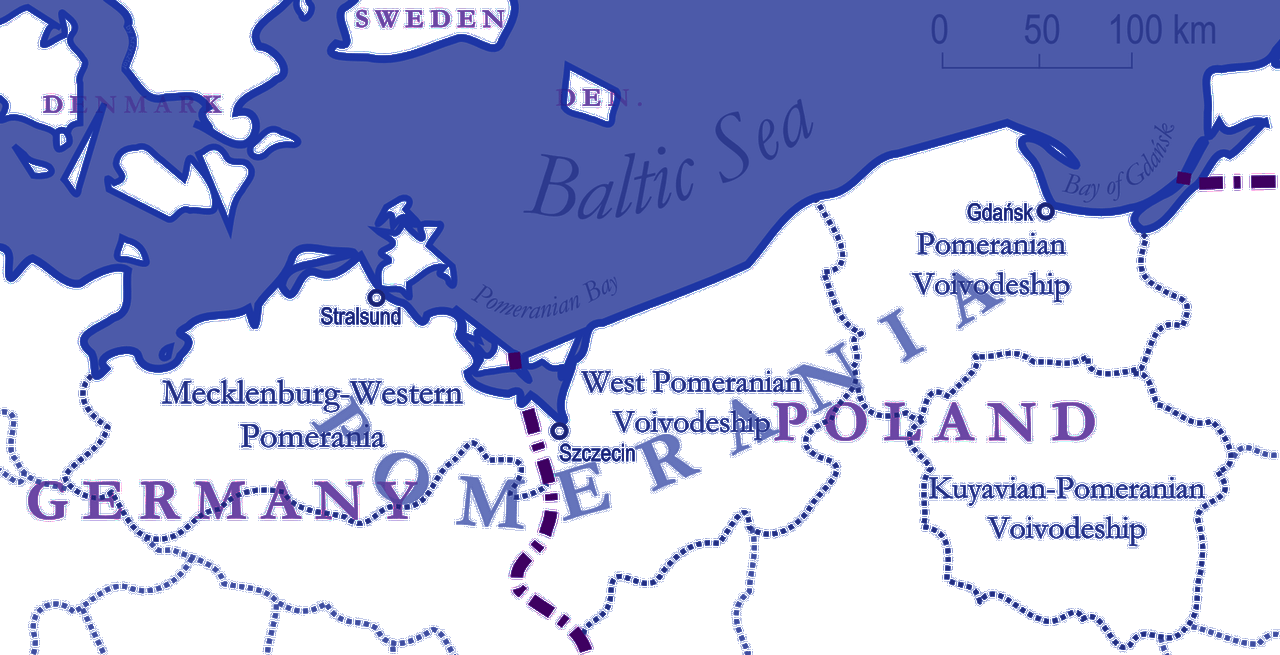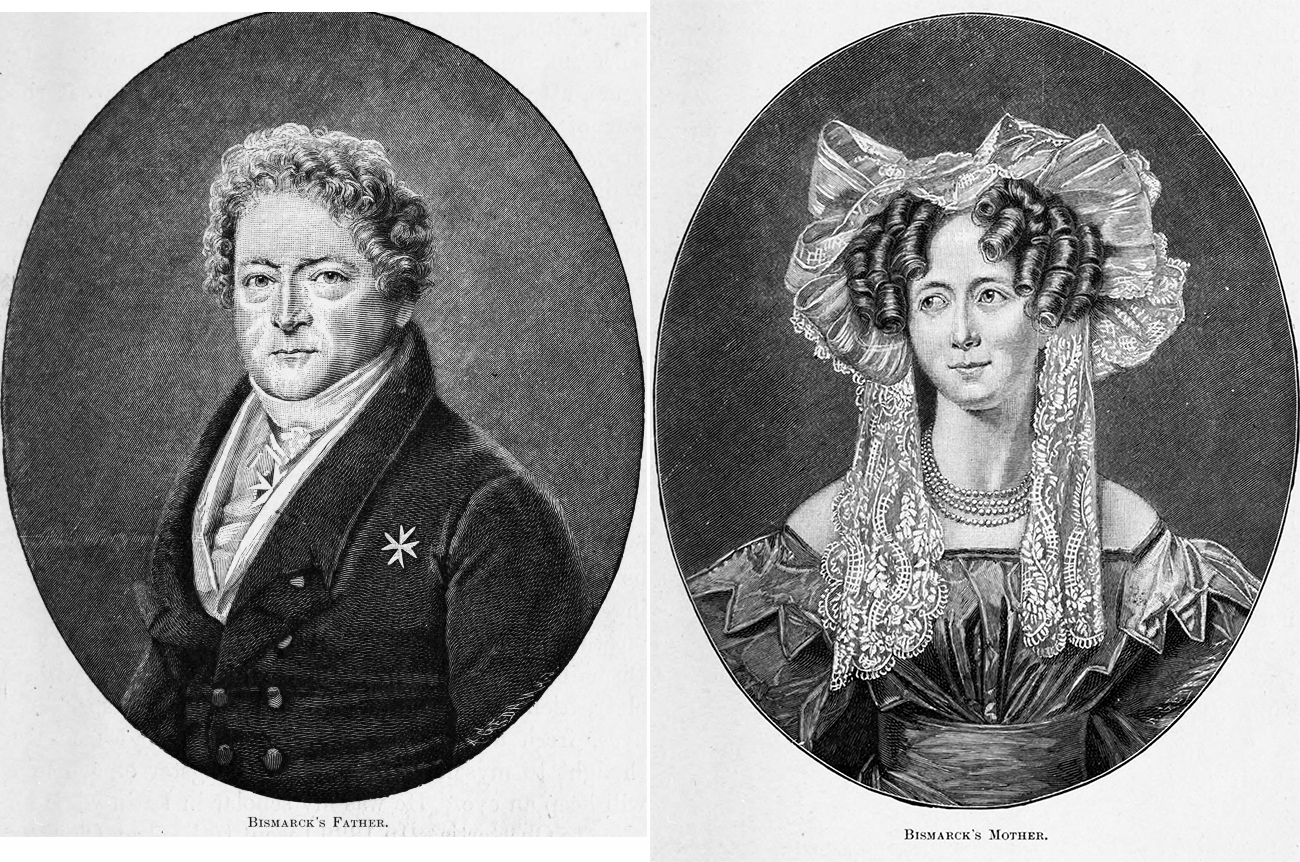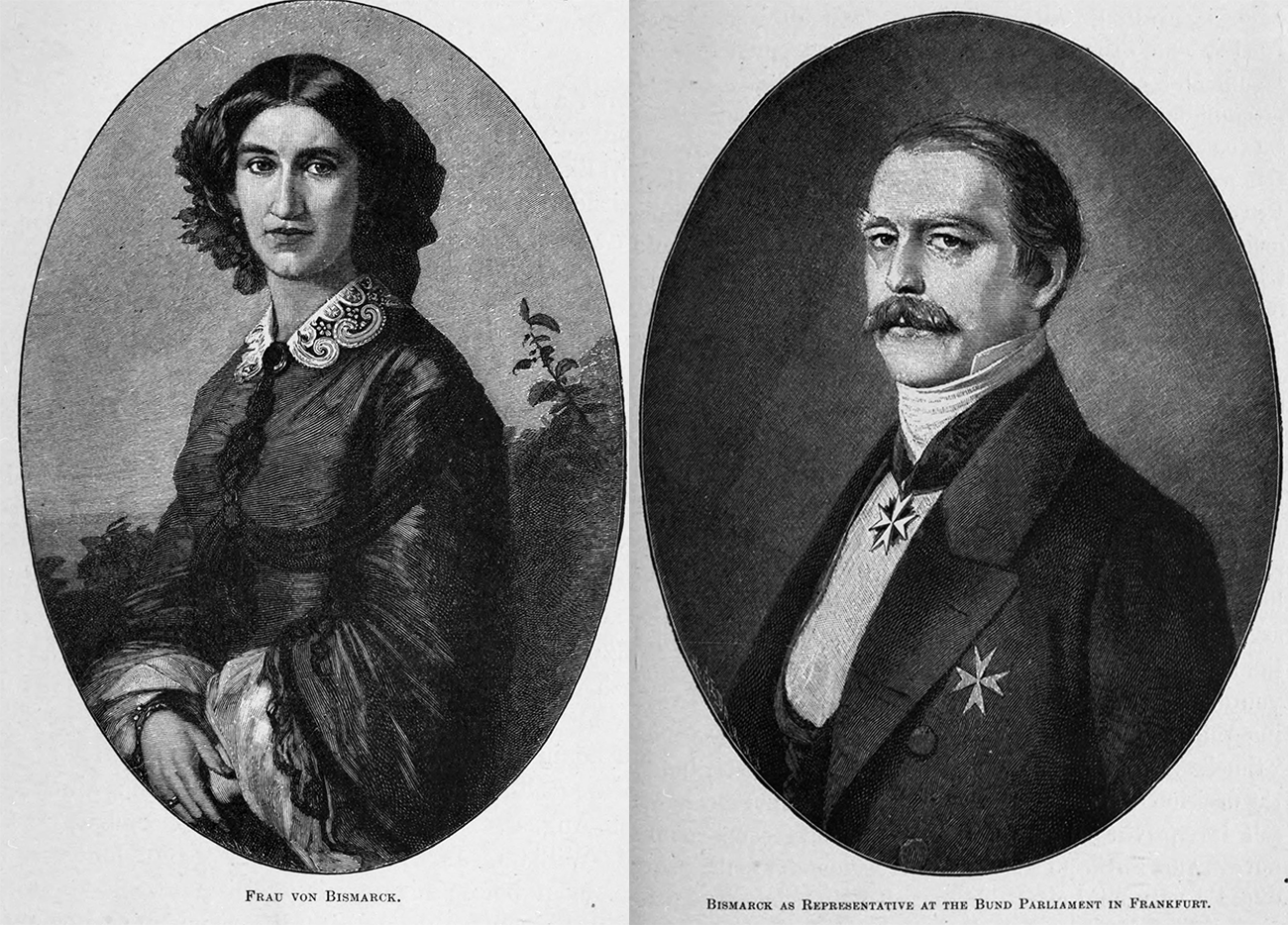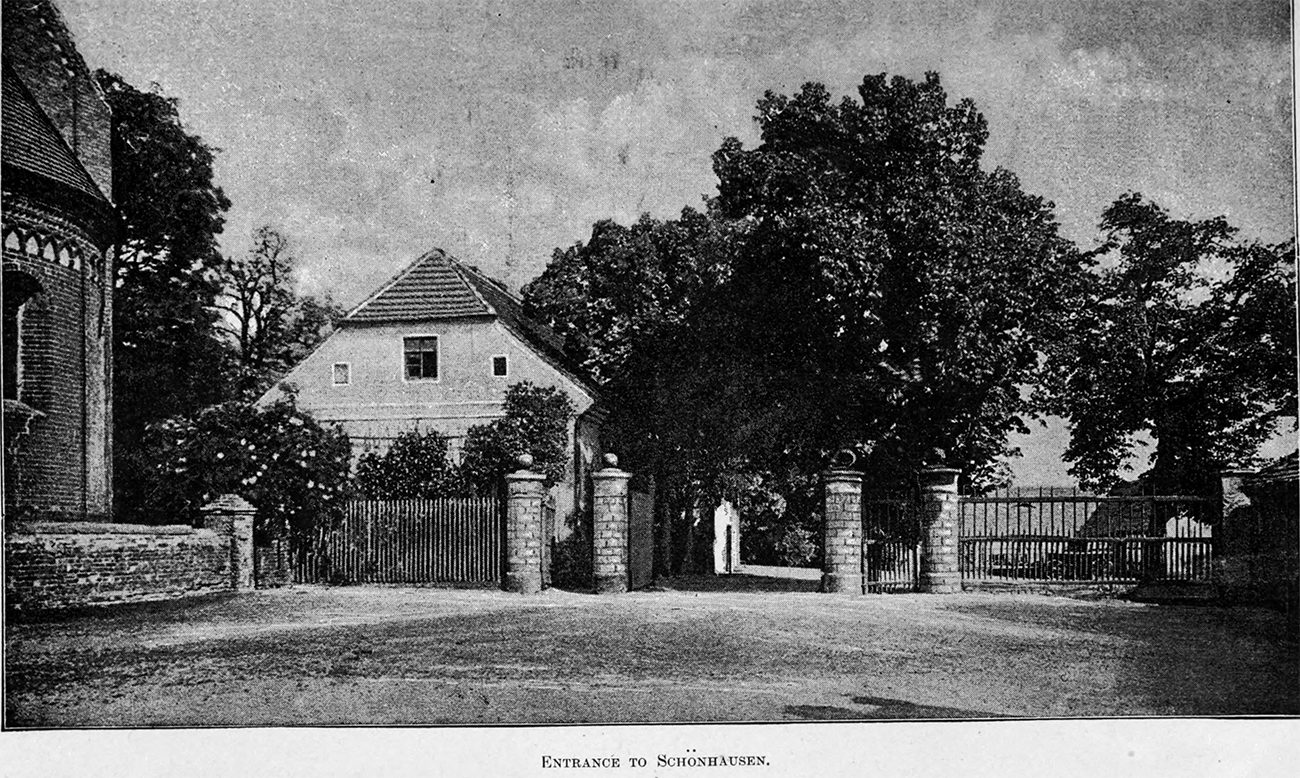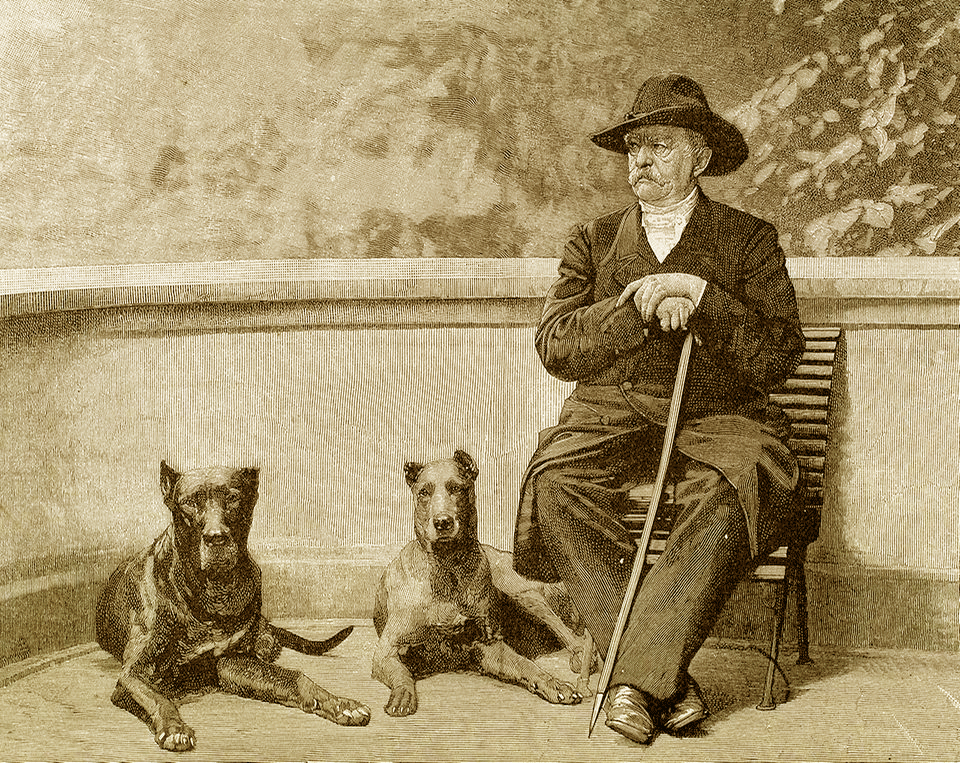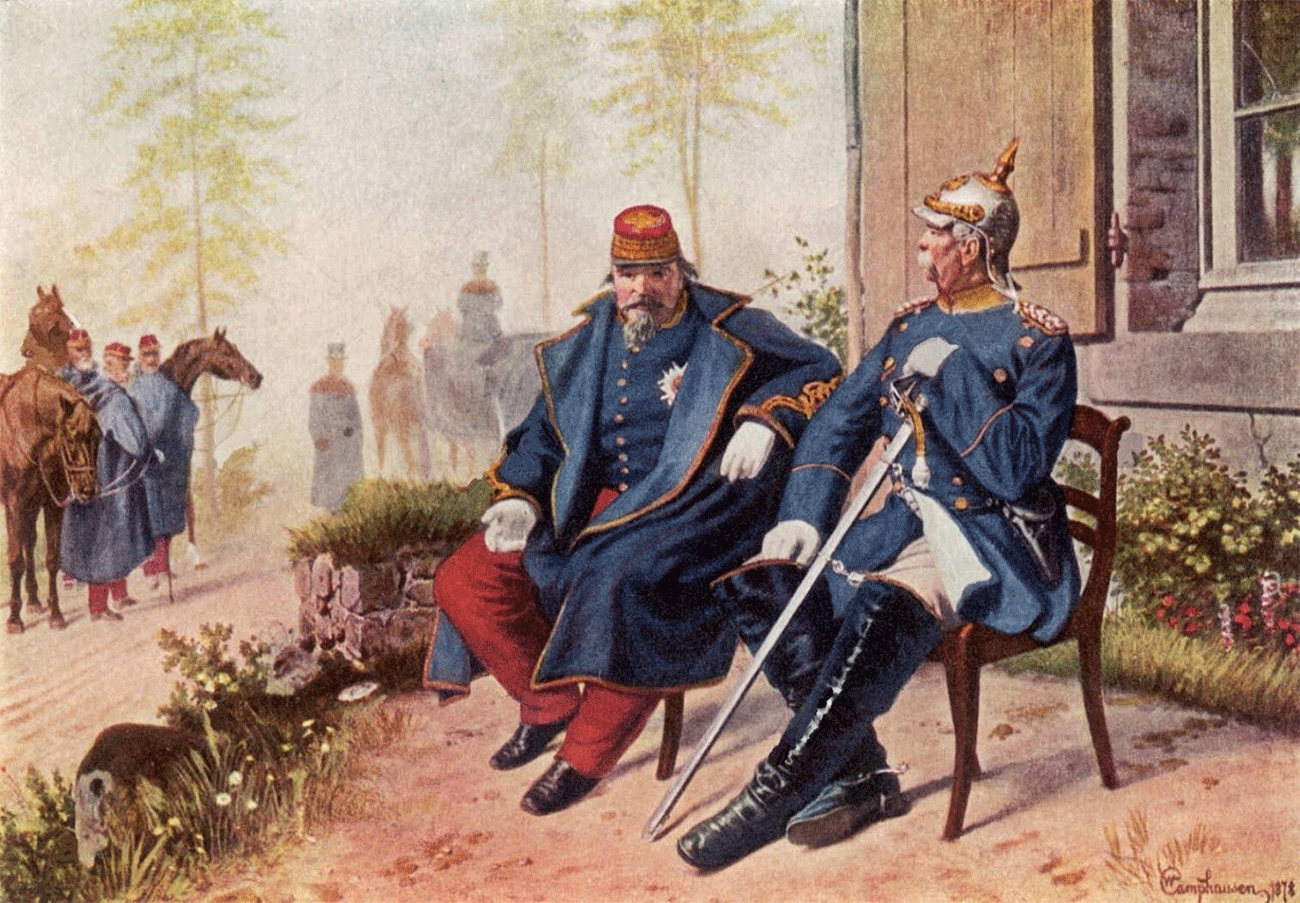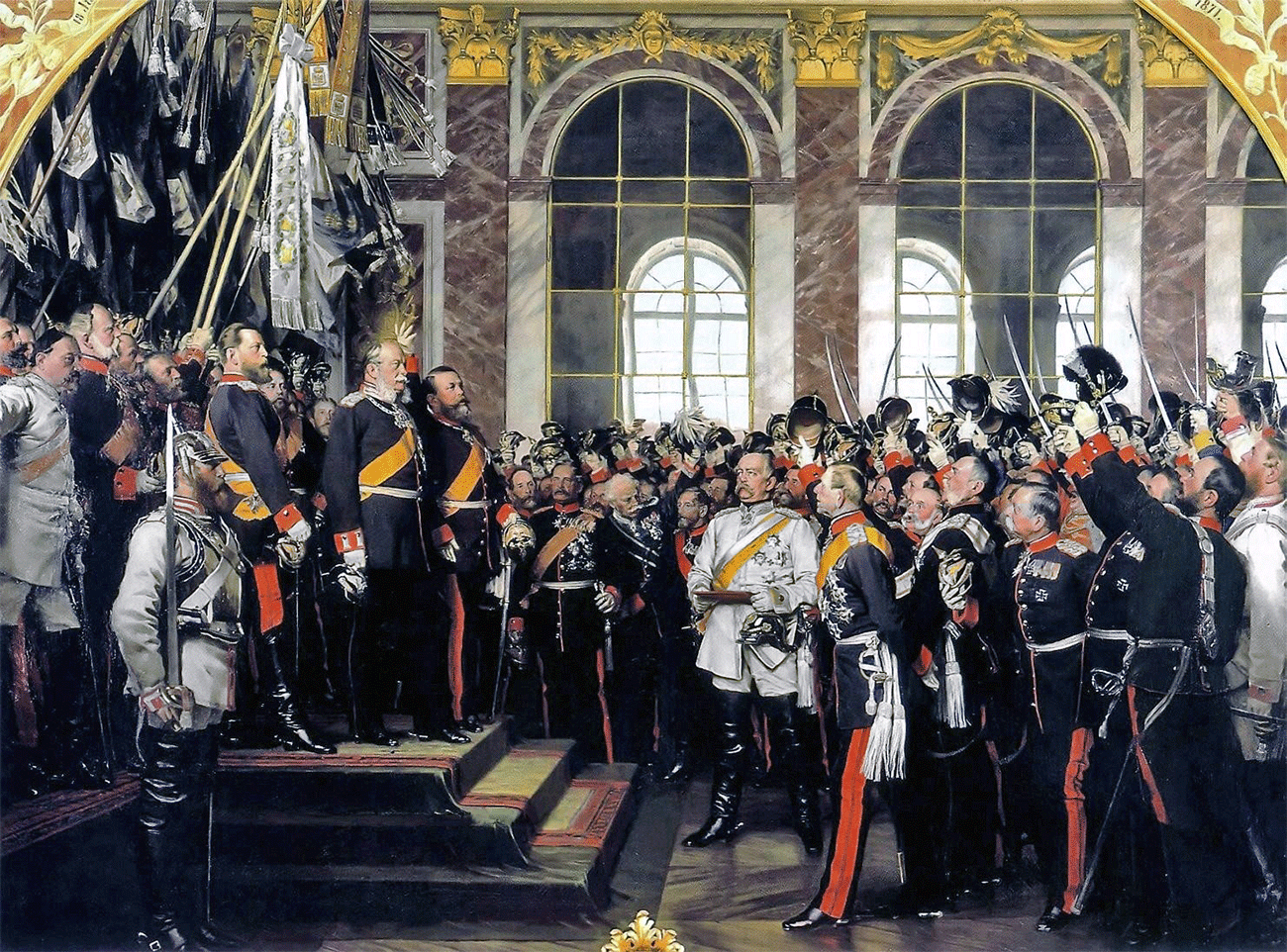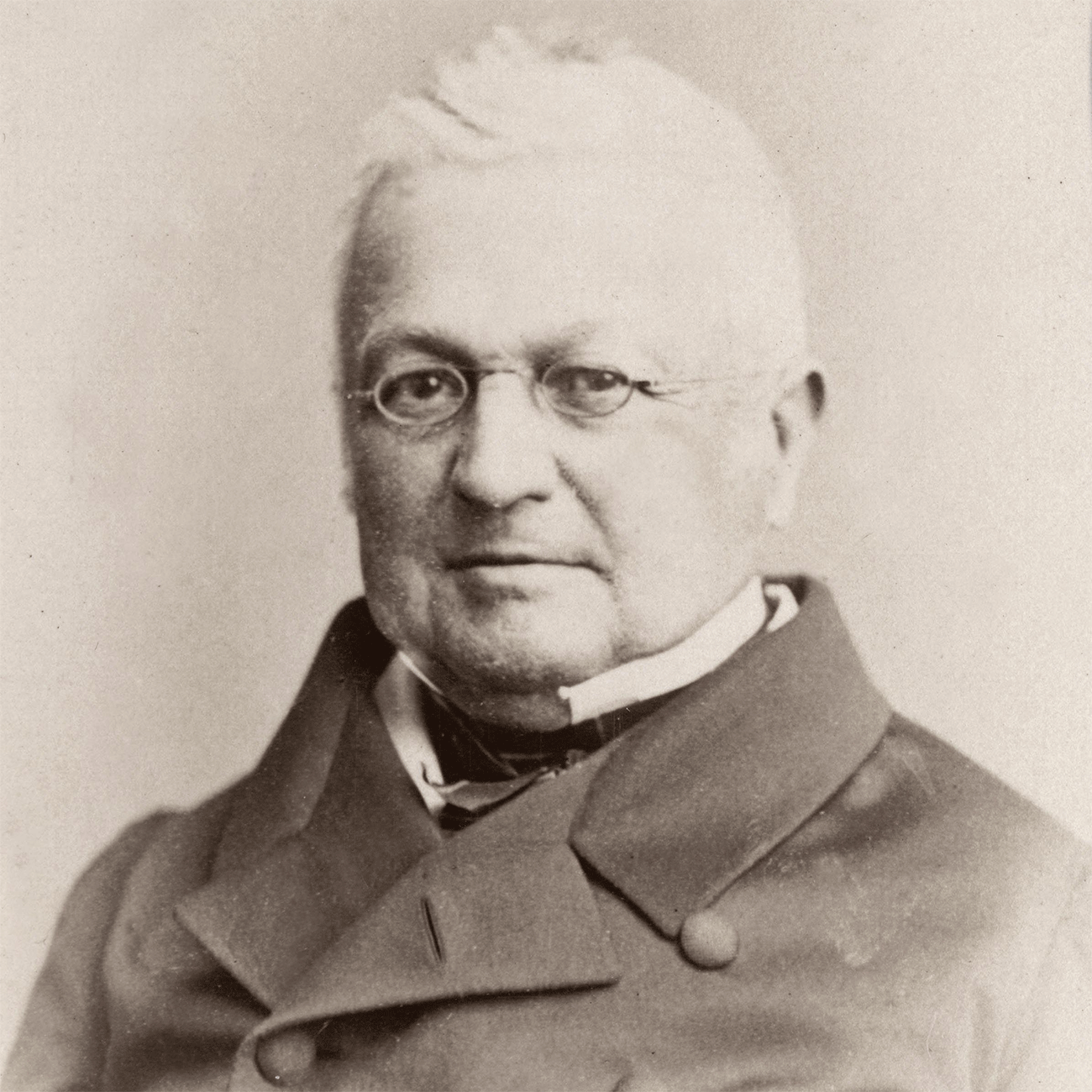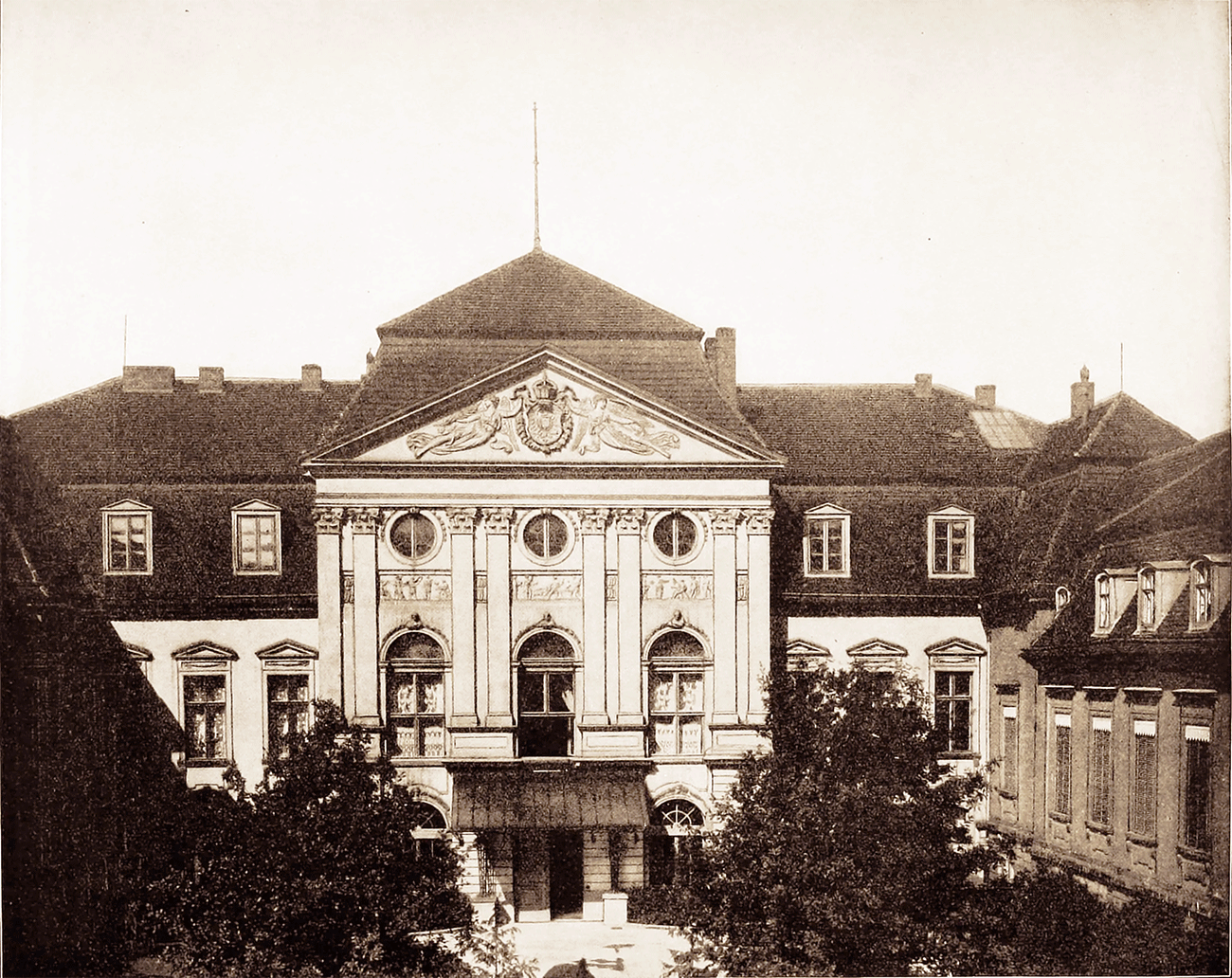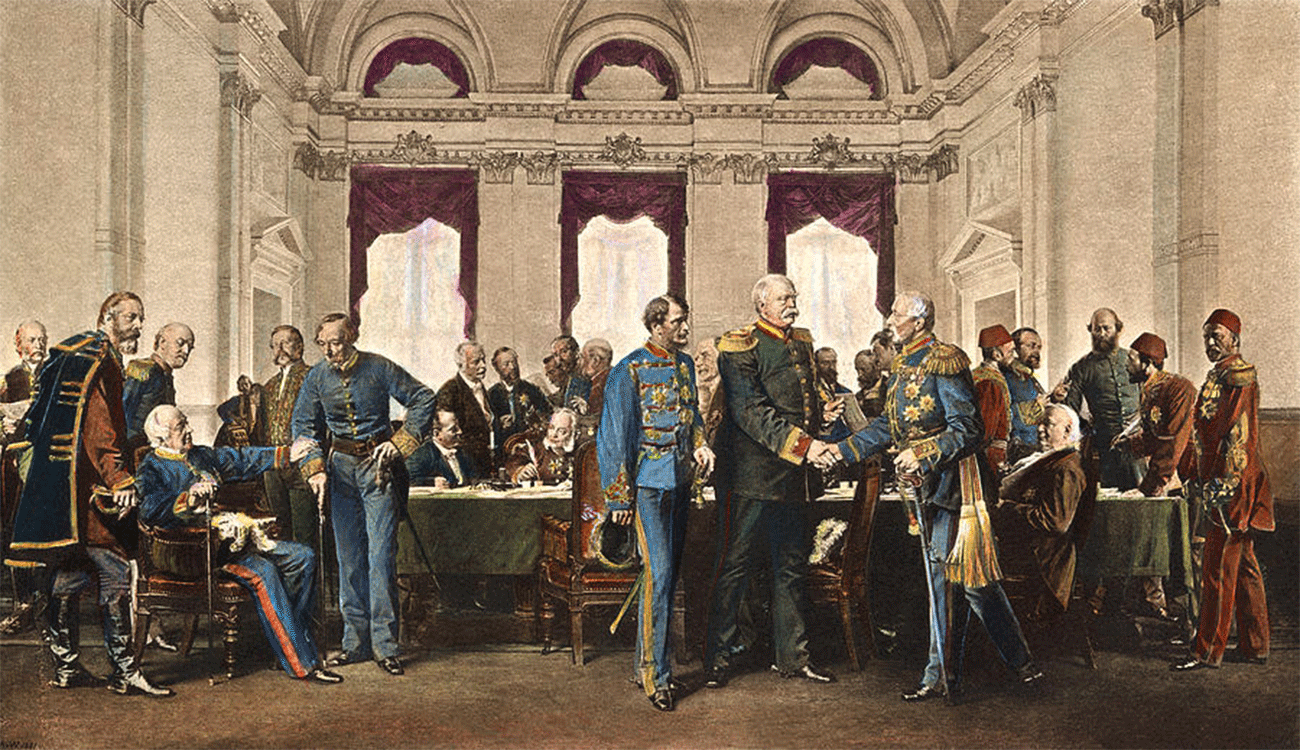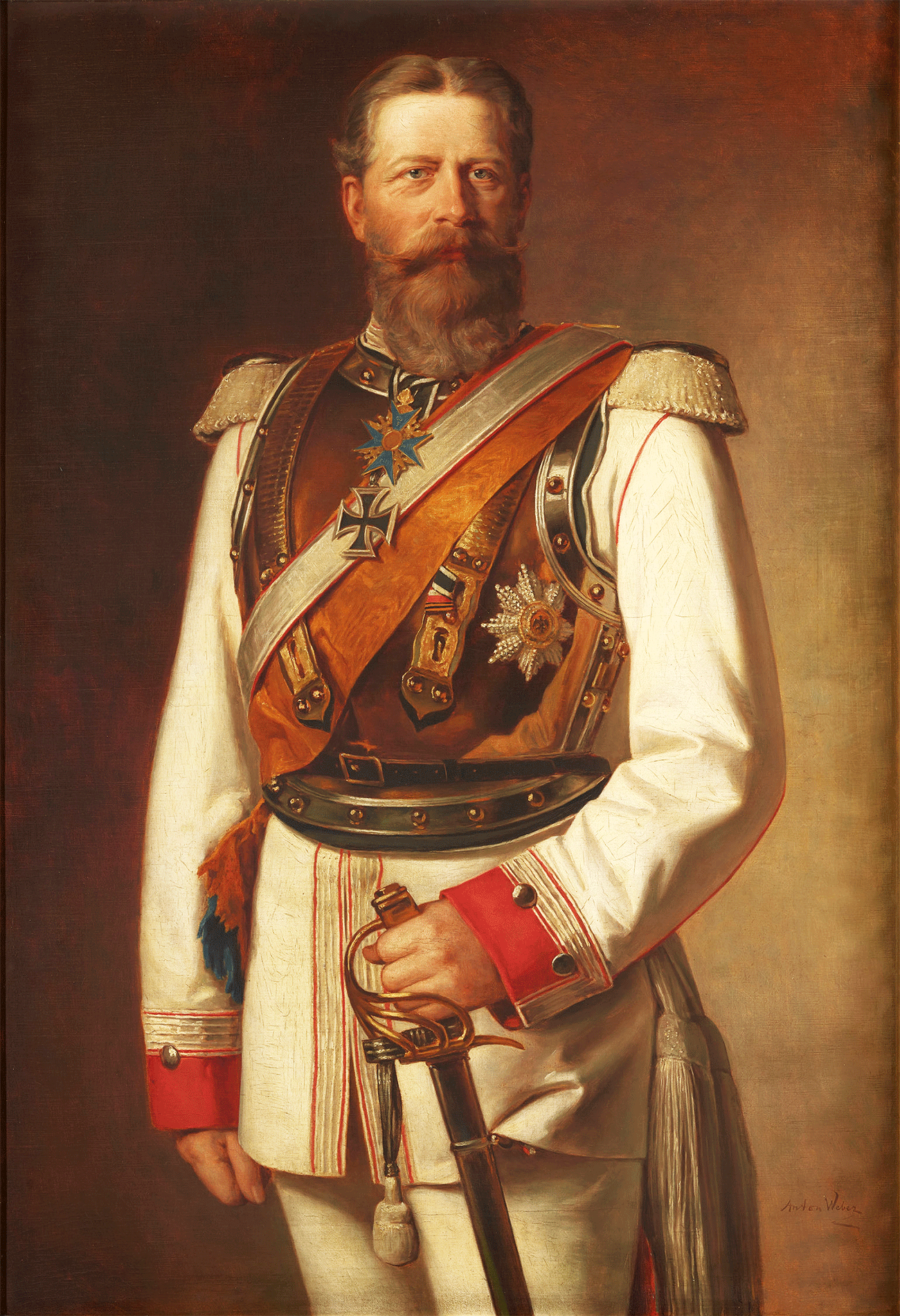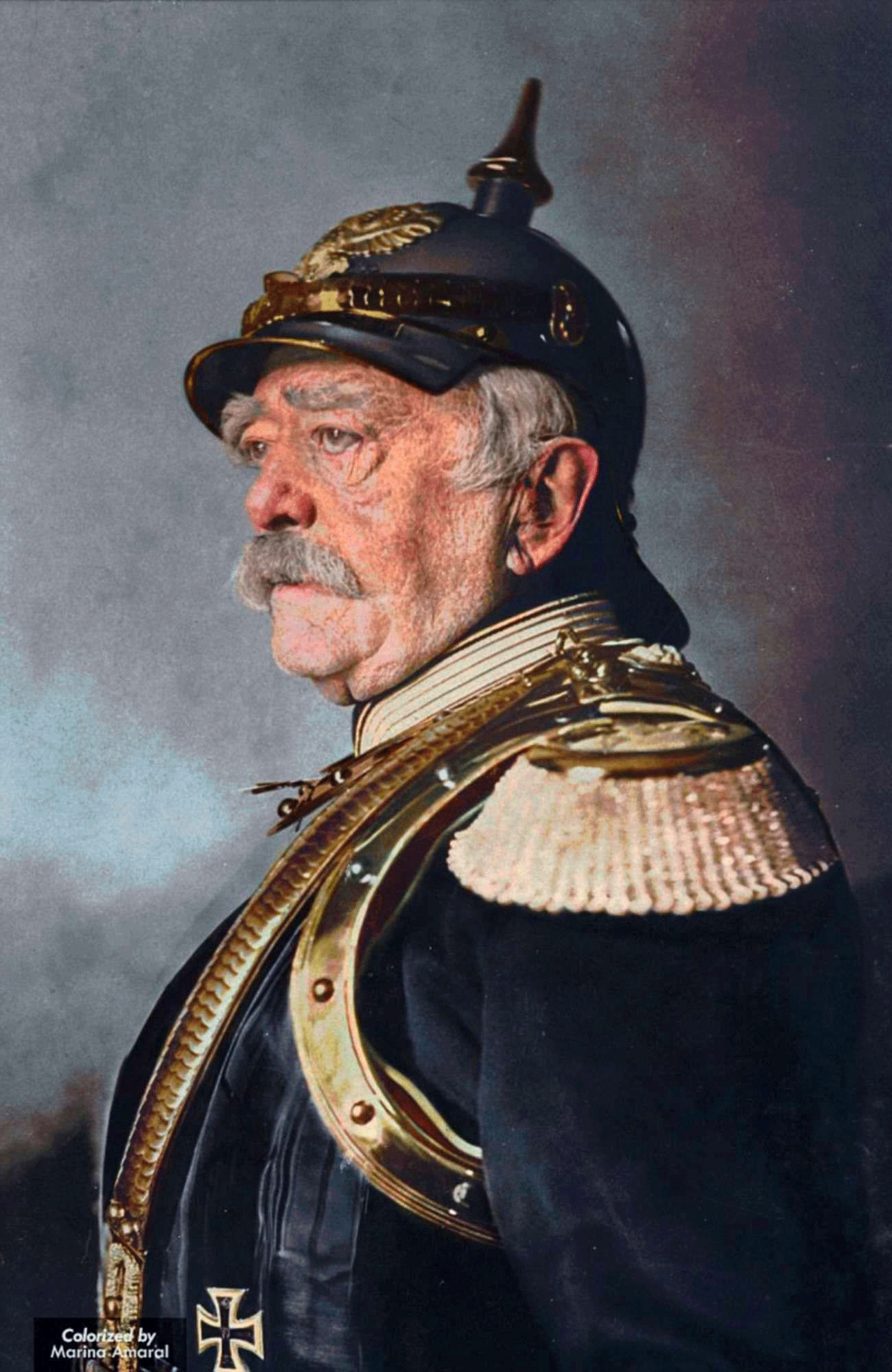
READING HALL
DOORS OF WISDOM

 |
READING HALLDOORS OF WISDOM |
 |
 |
 |
BISMARCKAND THE FOUNDATION OF THE GERMAN EMPIRE1815-1898BYJAMES WYCLIFFE HEADLAM
CHAPTER I. BIRTH
AND PARENTAGE
CHAPTER II. EARLY LIFE, 1821-1847
CHAPTER III. THE
REVOLUTION, 1847-1852
CHAPTER IV. THE
GERMAN PROBLEM1849-1852
CHAPTER V. FRANKFORT, 1851-1857
CHAPTER VI. ST.
PETERSBURG AND PARIS, 1858-1862
CHAPTER VII. THE
CONFLICT, 1862-1863
CHAPTER VIII. SCHLESWIG-HOLSTEIN,1863-1864
CHAPTER IX. THE
TREATY OF GASTEIN, 1864-1865
CHAPTER X. OUTBREAK OF WAR WITH AUSTRIA, 1865-1866
CHAPTER XI. THE
CONQUEST OF GERMANY,1866
CHAPTER XII. THE
FORMATION OF THE NORTHGERMAN CONFEDERATION,1866-1867
CHAPTER XIII. THE
OUTBREAK OF WAR WITH FRANCE, 1867-1870
CHAPTER XIV. THE WAR
WITH FRANCE ANDTHE FOUNDATION OF THE EMPIRE,1870-1871
CHAPTER XV. THE NEW
EMPIRE, 1871-1878
CHAPTER XVI. THE
TRIPLE ALLIANCE AND ECONOMIC REFORM, 1878-1887
CHAPTER XVII. RETIREMENT
AND DEATH, 1887-1898
INTRODUCTION
POMERANIA lies between Brandenburg, the Baltic, and Prussia proper. It is rather a dreary waste, with little to recommend it either to the common traveller or the student of history. The soil is sandy, and, like the adjacent Holstein, better suited to grazing than agriculture. Long reaches of pasture-land are dotted with small hamlets and peasants' cottages, and broken up by occasional patches of woods and more extensive game-preserves. Its chief advantage consists in a healthy and bracing climate, which, with an habitually cloudy sky, makes toil pleasant to the laborer, and has built up a race of men as strong and vigorous as those of the Scotch border-land, a tract which it closely resembles. It was originally a portion of the old Vandalic territorjy, and is still inhabited largely by their descendants, who have a dialect of their own, and until the reforms of Von Stein were mostly in the condition of serfs. Through the centre of Pomerania flows the Oder, which near Stettin is joined by the Biese, a smallish river on whose bank are situated the town and castle of Bismarck. It would be natural to suppose that the name Bismarck had been derived from the river Biese, but this does not appear to have been the case. It should be a warning to the fine-spun arguments of archaeologists to learn that the earliest spelling of the name on record—early in the thirteenth century—was Bischofsmark, or mark of the bishop, nearly all Germany being divided at that time into marks or marches, and the Bishop of Havelberg being in authority over the district where the castle of Bismarck stands. It is a very old castle, belonging to the great days of the German empire, perhaps as early as the tenth century, and must have been inhabited by the Bismarck family long before the earliest record of them. We do not even know what their surname was, which, like that of the Hohenzollerns, was exchanged or fell into disuse after residing at the castle. The name of the Hohenstaufens (Weiblingen) has been preserved to us by Ghibelline tradition, though the family became extinct with Conradin. In those early times of political integration men improved their fortunes chiefly by valor on the battlefield and discretion in the hour of victory, qualities for which the Bismarck family would seem to have been always distinguished. To judge by their descendants, they were powerful and athletic men, such as would carve their way to fortune with the edge of the sword, and maintain it against all comers. There are some historical evidences of this, especially of a Nicholas von Bismarck, whose father left the family castle about the time when Dante was chief magistrate in Florence, and removed to the city of Stendal, where he and his son became impor-tant in civil affairs. Nicholas especially dominated for a time over Stendal and the adjacent districts, but was finally driven out of Stendal to seek his better fortune in the service of the Margrave of Brandenburg. This resulted in the Bismarcks' removal from Pomerania; and Nicholas, for his valuable assistance in peace and war, received from the Margrave the estate and castle of Bergstall, one of the largest baronial fiefs in the Altmark, as the Prussians continue to call it. We do not, however, hear of other notable Bismarcks from this time forward, though the family continued to hold its position, and was represented in all the great German wars down to the time of the French Revolution. They were tyrannically treated by the Elector John George of Hohenzollern, who dispossessed them of the valuable property of Bergstall, and removed them to a much inferior piece of property during the latter part of the sixteenth century. In spite of this unjust affront, they continued to serve the Hohenzollern family with true medisval loyalty. We find a Colonel von Bismarck in the army of Duke Bernard of Weimar, at the defeat of Nordlingen; after which he returned to Brandenburg to fight under the Great Elector, and came through the whole period of the Thirty Years' War without injury, so far as we know. Between 1570 and 1650, however, three branches of the Bismarck family had perished, a witness to the terrible ordeal of that period,—though in what way we are not informed, and only the present Schonhausen line survived to represent the family. Crevese and Schonhausen are the two estates which the Elector John George had, with a bonus of two thousand thalers, presumed to consider an equivalent for the Bergstall property. It is stated that he also made a present of aif hundred florins apiece to each of the ladies, to console them for their change of residenc ! Frederick William I, in like manner, attempted to console the relatives of Lieutenant Katte for the execution which depended entirely on his own will. Prince Bismarck's third grandfather married a lady of the Katte family early in the eighteenth century, and the Prince's great-grandfather was a contemporary of Frederick the Great and much in favor with him, but, unfortunately, was killed in 1742 at the battle of Czaslau, where Frederick defeated the Austrians with inconsiderable loss. He was a colonel of hussars, and we may judge him to have been the ablest of the Bismarck family in recent times until the present Prince. The most distinguished connection of the family, though the Bismarcks of our time are not descended from him, was Lieutenant-General Ziethen, the great hussar commander of the Seven Years' War, whose daring exploits and hair-breadth escapes have become a household legendary store among the Prussians. The Germans consider him to have been fully the equal of Murat, and there is an attractive statue of him by Schadow in Dessau Place at Berlin,—a rather slender man, in a dreamy, nonchalant attitude, as if life were a matter of indifference to him. So it probably is to the bravest kind of men. We cannot discover anything in the Bismarck genealogy which would lead us to expect the appearance of a first-class genius in the family. Prince Bismarck's own father, Carl Wilhelm Ferdinand von Bismarck, born in 1771, was a man of rather imposing personal appearance, with refined features and a forehead that reminds one of Goethe, but left no record which distinguishes him in any way. As Kaunitz said, Nature has to rest before producing a great statesman. Carl Wilhelm served in the king's body-guard for a time, but we do not hear of him as taking an active part in the defence of his country against the French. His one distinction is that he chose a most excellent wife. Three months before the battle of Jena he was married to Louisa Wilhelmina Menken, not of a noble family, but, what was much better, the daughter of Privy Councillor Menken, and in all respects a superior woman. Councillor Menken was a man of ability, of liberal tendencies, and much trusted by Frederick the Great in his last years. It is from this direction, evidently, that Prince Bismarck derived his diplomatic talent, and, perhaps, his intellectual ability. Carl von Bismarck saved his young wife from the anxiety of his presence at the battle of Jena, and lived thenceforth a rather retired and very domestic life, chiefly given to the oversight of his estates, of which he had two in Pomerania, besides his head-quarters at Schonhausen,—and to the shooting of ground game. His children were many, and their birthdays extended over the space of twenty years. Otto was the fourth in order, biit his eldest brother died in infancy, so that he became his father's second son, a position among noble German families which commonly requires of a
OTTO VON BISMARCK Great events are the stars which preside over the birth of remarkable men. There is every reason why they should have this stimulating effect, and sufficient instances are known to bear witness to it. Webster, the defender of the constitu-tion, was born while the Constitution of the United States was under discussion, and most of the great men of the nineteenth century came into existence during the wars of Napoleon. Bismarck was the last and most important of these. He first saw the light on the first of April, 1815, when all Europe was in an uproar. Napoleon had been welcomed back to France, and received in Paris with enthusiasm ; the Vienna Congress had dissolved itself in haste, and armies everywhere were in motion. The effect of this on some women might have been slight enough; but the Frau Louisa Wilhelmina von Bismarck was a person to recognize its significance, and it may have had a determining influence on the future of her second son. As events have proved, a more unfavorable circumstance for the fortunes of the Bonaparte family could not have happened than the advent of Otto Edward Leopold von Bismarck. The Frau von Bismarck could not be blamed if she felt a hostility towards the French; for in 1806 she had only been saved from the insults of Napoleon's soldiers by a stout oaken door at Schonhausen, which still bears the marks of their violence. If Otto von -Bismarck bore any ill will towards the French as a nation, this is sufficient to account for it. He was not, however, brought up at Schonhausen, for his parents removed the following year to the estate of Kniephof, in the vicinity of Naugard, Pomerania, and not very distant from the old castle of Bismarck, where the family had acquired its knightly character seven or eight centuries before. There was no place for Count Carl Wilhelm in the rejoicings and congratulations after the return of the Prussian army from Paris, and his high-spirited wife must have felt this keenly. They lived in retirement for the next seven years or more, during which time Otto grew to be a strong, vigorous boy in the bracing air of Pomerania, with a liking for domestic animals, woods, and country life which never left him. The Pomeranians are the tallest men and accounted the bravest soldiers in the German army, and Bismarck, both in mind and physique, was a typical example of them. He inherited his father's figure and his mother's mental endowment, as well as the vigorous and clear-sighted intelligence of the old Privy Councillor Menken. His mother was a master of the game of chess, as well as a fine linguist and a reader of the best literature. She possessed sufficient insight into character to discover that her son Otto was well suited for the profession of a diplomat, and destined him at an early age for his future career. It is probable that there was more of the Menken than of the Bismarck in him. It would be well if we could know more of Otto's childhood, and the manner in which his mother brought him up, but we never shall unless he has left some record of it himself. The Prussians believe in severe discipline, and it is this which gives the slight stiffness to their manners, and the Frau Louisa Wilhelmina was no exception. When Otto was exactly six years old she placed him in charge of Dr. Plamann, who kept the strictest school in the city of Berlin. He afterwards confessed that this was the severest portion of his life. His elder brother, fortunately, was with him, also a bright and vigorous boy, and was no doubt much of a help to him, but there were no entertainments, such as make school-life pleasant to English and American boys. They could not go out to walk except in charge of an instructor, like the pupils in a convent; and to a child so full of life and energy as young Otto this was very oppressive. He suffered from homesickness, a mental malady which some children never become acquainted with. Though not fond of his studies, he made excellent progress, was liked by his companions, and at the age of eleven years and six months he entered the Friedrich Wilhelm Gymnasium to prepare for the university. German gymnasia are secondary schools of instruction, and something more than that. The name would seem to be badly selected, unless, it refers to the unclothed condition of the youthful mind at that time of life. The graduate of a gymnasium is supposed, however, to be thoroughly versed in Greek, Latin, mathematics, and such modern languages as his parents may designate for him, and altogether as well equipped as a junior in our best colleges. He then goes to the university and commences the study of his profession, taking parallel courses in history, philosophy, art, and literature. In this manner time is saved, and the youth is not thrown upon his own resources at too tender an age, before he knows properly how to care for himself. Otto troubled himself about his Latin and Greek only as much as was necessary to pass the examinations. All through life he cared little for such things as were not of practical use to him. In the modern languages he made better progress, and was always an assiduous reader of history, the true foundation of good statesmanship. Besides the regular curriculum, his ambitious mother inflicted on her sons French and English tutors during the summer vacation, so that there was practically no cessation to their studies. No expense was spared for their education, and they were as carefully guarded against evil influences as the sons of wealthy Athenians in the time of Plato. The Frau von Bismarck was much given to theological reading, and felt the influence of the great wave of religious liberality which swept over Europe and America between 1820 and 1840. She was a warm friend and devoted admirer of Dr. Schleiermacher, of Berlin, who was not more remarkable for his profound scholarship than for the eloquence of his discourse. No German theologian of the century has exercised so extended and long-continued influence in America as Schleiermacher, and the prudent liberaHty of his views has largely contributed to the moulding of such minds as Channing, Beecher, and Phillips Brooks. At his mother's desire. Otto was confirmed in the church of the Trinity at Berlin, at Easter in the year 1830, an event whose importance the distinguished clergyman did not live to recognize, but which may have had a decided influence on the future of his young neophyte. The path in religion pointed out by Schleiermacher and his mother was the one which Bismarck followed throughout life, as his frequent conversations on religious topics bear witness. With creeds and theological tenets he did not concern himself much, but his faith in an all-wise ruler of the universe remained unshaken through all the physical and metaphysical scepticisms of the nineteenth century. It is true that after his diplomatic service began Bismarck did not often attend church, but there were always religious books on his table, and he carried them on his campaigns to France and Bohemia. One of Napoleon's most sensible remarks was, that, as a rule, it was best for every man to adhere to the religion in which he was brought up, and Bismarck exemplified this. Obstinate and unruly school-boys often make able men, but are always narrow-minded. It is because they cannot see both sides of a subject that they act as they do. Young Bismarck's conduct at school was such that he rarely required correction, and never severe punishment. We like this better than that more perfect behavior which results from too strict a consideration for form,—the behavior of the martinet. Dr. Bonnell, who was one of Otto's instructors for whom he acquired an enduring affection, and in whose family he resided from his sixteenth to his eighteenth year, has said of him that he was a thoroughly amiable and unaffected boy, showing a decided preference for domestic life, not given to roaming about at night. His only fault was that he was rather domineering and exacting with servants, as sons of the nobility too often are. He made few friends at school, but those few he retained through life. This may have been because he did not often find in others those substantial qualities on which lasting friendship is based. At Kniephof he learned to ride and shoot, as a matter of course. He was always a daring horseman and an expert swimmer, besides being a good fencer and dancer. He was not, however, so fond of these amusements as to neglect more serious business for them. Gyfnnastics he never cared for. He grew up tall, but a rather slender figure, and it was not until middle life that he broadened out as we now see him in his pictures. He was much attached to a great Danish dog which his father purchased for him at this time, and which became his constant attendant for many years. GOTTINGEN Having graduated from the Berlin gymnasium with honor, Bismarck wished to go to Heidelberg, where there is always a large corps of Prussian students; but his mother, who had long since obtained control of all the family affairs, preferred Gottingen for him. It is sufficient evidence of her strong will that she could thus prevail over the wishes of her strong-willed son. It is said that she objected to Heidelberg for fear Otto might contract the habit of beer-drinking there, for which she had an especial dislike; but she could assign a better reason than that, since Gottingen is in Hanover, where the purest German is spoken, and this for a diplomat was also of importance. Otto went accordingly to Gottingen in May, 1832, and remained till November, 1833, studying law, and whatever else he had time or fancy for. He went alone, and, what seems strange, was wholly unacquainted with his fellow-students. Inexperienced and left to his own devices, for the first time in life, with an exceptionally active mind and full of Pomeranian energy, he plunged from one mishap or blunder into another. His record at the university was a turbulent one, not unlike that which Schiller describes in his account of Wallenstein. He had already fought his first student's duel, a very boyish affair, in Berlin; and one morning, being laughed at in the streets of Gottingen for his rather eccentric attire. Otto in his confusion or disgust knew of no better alternative than to challenge the whole party. This, however, had consequences that could not have been foreseen. The second of the Hanoverians, who called on young Bismarck to arrange a meeting, found so little ill will and so much good humor in him, that he was strongly attracted towards him, and offered to bring about a reconciliation, which was accordingly done. The Hanoverian soon afterwards became Bismarck's chum, and, being older and more experienced, persuaded him to leave the Brunswick corps, to which Otto then belonged, and to join his own, since there was no regular Prussian corps at the university. Thus early did Bismarck evince his indifference to party attachments. The Brunswickers, however, were highly offended, and their leading man challenged him to fight with the schlager, from which Bismarck escaped with a few blows, and his opponent with a cut in his face. Of course, the Brunswickers were not going to let him off on such terms as this, and Otto was challenged successively by all their ablest swordsmen. It was a miniature of his after-experience as a statesman with the great powers of Europe. Bismarck is credited with having fought twenty duels with the schlager during the first year, and in every instance but one he had the advantage over his antagonist. In his encounter with a student named Biederwig, whom he afterwards greeted on the floor of the Reichstag, the latter's sword-blade broke as Bismarck was parrying his attack, and gave him a slight cut on the cheek. A co-vention of experts, however, decided that such an accident did not constitute a victory for Biederwig, though the gentle-man himself always held a different opinion. In this way Bismarck became the champion of the Hanoverians, and, though only eighteen, he became the admired and most dreaded fencer of the university. It is the fair explanation of his duelling experience, which otherwise might be difficult to account for. Though of an aggressive nature, he was not quarrelsome, but rather conciliatory. It is a peculiar custom, this schlager duelling of German students, and seems to take the place with them of those athletic games which the Saxon race so much delight in. It was only at a later period that English foot-ball was introduced at Heidelberg. Though their encounters rarely result in a more serious injury than a permanent scar on the face, these scars are so common that they would almost seem to be the mark of an educated German. From the earliest times the Germans have been given to such rude tests of personal courage, and there is no doubt a certain advantage in them. Schlager-fighting trains the nerves and hand for the more serious emergencies of life, and is as useful to the surgeon or lawyer as it is to the soldier; but the idea of sending one's sons to college to be marked in this manner is not very pleasant, and perhaps it would be quite as well if German students found some other method of proving their manliness. The pistol duel, with which Bismarck was connected in January, 1833, was in no wise to his discredit. An English-man, named Knight, had fallen out with a young German baron, and they had arranged for a deadly encounter. At the last moment the baron's second disappointed him, and Bismarck was asked to fill his place. This he did from that sentiment of loyalty to his countrymen which is the best virtue in early life; and he showed on this occasion that masterful trait in his nature arising from a clear perception of the case before him, and readiness to act according to his thought. The principals were too nervous to hit each other at the first fire, and Bismarck, who had purposely lengthened the distance between them, proposed a cessation of hostilities, which all parties were glad enough to agree to. Such affairs of honor, however, were contrary to the laws of the university, and the participants in it were severely punished; the rector allotting Bismarck for his connection in it eleven days of solitary confinement, though public opinion spoke loudly in his favor. At another time he was accorded four days' confinement for having associated with an illegal organization, but what this was we are not informed. Among the friends that he made at Gottingen were Dr. Windhorst, afterwards his most active opponent in the Reichstag, and John Lothrop Motley, the historian of the Dutch Republic. There were other Americans there at the time with whom he became friendly, and assisted in the celebration of the Fourth of July with pleasant international courtesy. He has himself recorded his acquaintance with Motley in a letter to Oliver Wendell Holmes, dictated in March, 1878, as follows "I met Motley at Gottingen in 1832; I am not sure if at the beginning of Easter Term or Michaelmas Term. He kept company with German students, though more addicted to study than we members of the fighting clubs. Although not having yet mastered the German language, he exercised a marked attraction by a conversation sparkling with wit, humor, and originality. In the autumn of 1833, having both of us migrated from Gottingen to Berlin for the prosecution of our studies, we became fellow-lodgers in the house No. 161 Friedrich Strasse. There we lived in the closest intimacy, sharing our meals and outdoor exercise. Motley by that time had arrived at talking German fluently; he occupied himself not only in translating Goethe's poem 'Faust,' but tried his hand even in composing German verses. Enthusiastic admirer of Shakespeare, Byron, Goethe, he used to spice his conversation abundantly with quotations from these his favorite authors. A pertinacious arguer, so much so that sometimes he watched my awakening in order to continue a discussion on some topic of science, poetry, or practical life, cut short by the chimes of the small hours, he never lost his mild and amiable temper. Our faithful com-panion was Count Alexander Keyserling, a native of Courland, who has since achieved distinction as a botanist.'' This is an invaluable letter, for it throws light on the deeper thought and feeling of Bismarck during his academic years. Motley would not have found pleasure in discussing Shakespeare and Goethe with him, if Bismarck had not also been a man of ideas. They were evidently kindred spirits. Bismarck escaped his second incarceration by suddenly changing from the University of Gottingen to the one at Berlin, where he continued his study of law with Sarigny, the Ulpian of Germany. Sarigny's lectures on the Roman law, however, did not interest him. He cared little for the ancients or their methods, and lived wholly in the present time. Although seemingly neglectful of his college duties, he never-theless accomplished a good deal of work, and in the spring of 1835 passed the rigid Prussian examination for admission to the bar,—an exceptional age, and a severe mental ordeal. He seems to have disliked lectures, and preferred studying alone, with the occasional help of a tutor. BARRISTER AND SOLDIER Through the influence of his family Bismarck was immediately appointed an examiner in one of the intermediary courts of Berlin, where he found active employment during the year 1835-36 in taking the testimony of witnesses. Ac-cording to the practice of the civil law the evidence in court is not elicited by the counsel on either side, but by state examiners, and after they have finished, the counsellors are also permitted to make inquiries. This has the advantage over the common law of preventing witnesses from being brow-beaten and otherwise imposed on by unscrupulous lawyers who often entertain the jury at the witnesses' expense; but in exceptional cases it has the disadvantage of allowing the government too great an influence over judicial proceedings. Bismarck distinguished himself in this new avocation by his pertinent and searching questions, and the slight impatience of his manner was ameliorated by an evident personal interest in the witness. He here became acquainted with human nature as it appears in the substrata of society, which is sometimes hidden altogether from those who are fortunately born, and learned to know men and women as they really are at heart more clearly than he could have done in any other way. He was particularly impressed, as he afterwards related to Dr. Busch, by a woman who was required to sign a certain document, but absolutely refused to do so, although he, and the judge as well, tried all their powers of persuasion upon her. In the same year he was introduced at court, where his commanding figure and the strong stamp of his face attracted the attention of royalty itself. His future patron, William I, was then commander of an army corps, and it was thought that if he only had a chance to distinguish himself he would make a celebrated general. These two men, afterwards so indispensable to each other, met and parted without the least anticipation of their future relations. Prince William was devoted to the army, and Bismarck to the law ; but his experience at court was excellent discipline for him, after the negligent ease and freedom of German student life. Old Dr. Johnson said in regard to his interview with George III., "It does you good to talk with your king : one cannot become angry with the king." In 1836 Bismarck exchanged his Berlin office for the position of referendary at Aix-la-Chapelle, a government position which afforded him small pay, and work of even a smaller description ; but it was considered important that he should become acquainted with the government system of bureaucracy and the details of its administration. It is likely that Frau von Bismarck had a hand in this, though she was now in failing health and lived in retirement for the most part at Schonhausen, for Aix was the resort of French, English, and Hollanders, with whom Otto might be expected to improve his knowledge of those languages. So, at least, it turned out, for we find him making English and French acquaintances there; reading Hamlet and Richard III,—the last, perhaps, from a curiosity to learn what Shakespeare would make of such a hideous character. The close neighborhood of the Rhineland, which, with its old castles, romantic scenery, wines, and dreamy atmosphere, seem like an enchanted region to the inhabitants of prosaic Prussia, was an allurement that attracted Bismarck strongly. "How much time," he said afterwards, "I wasted in my youth, strolling, drinking, dancing, and flirting on the Rhine!" Unhappily he was obliged to pay for this youthful Elysium by an equal period of sadness and melancholy afterwards. It was a midsummer night's dream, in which folly and delusion were mingled with delight. It was from Aix that he made his first journey to England, and was cautioned, after landing in London on Sunday morning, for whistling in the streets. The solemnity of the English Sabbath did not impress Bismarck favorably, but he noticed the great advantage which the country had de-rived by its exemption from the ravages of war. Hesekiel suggests that Bismarck did not leave Aix of his own free will, but whatever happened there could not have been very serious, for he still remained in the government's service. The following year (1838) we find him at Potsdam engaged as a referendary, and at the same time doing service as a private in the Jager (riflemen) battalion of the Royal Guard, which had formerly been Blücher's guard also in the French campaigns. To see the Jager battalion drill at Potsdam is a spectacle like the Strasburg clock. In 1839, however, Bismarck removed again to Greifswald, where there was an agricultural academy, for the purpose of learning better how to manage the paternal estates, which he foresaw would soon require his personal attention. Here also he united the duties of a soldier with those of the civilian, thus completing his two years of service to the Prussian state. In this way he finished the circuit of his accomplishments, and might step forth now into the great world a complete and well-rounded man, illustrating the words of the poet, " Who takes his hand from the ploughing, The kingdom is not for him." The great world, however, was still far enough off from Otto von Bismarck. His happy student life, the splendor of the Berlin court, and the festivities of the Rhineland were a dream of the past never to return. At Potsdam he again met his brother Bernhard, who had served four years in the dragoons and now also accepted office as a referendary; and it was about this time that the two brothers discovered that the family exchequer was wellnigh empty. Their chess-playing mother had not proved a wise manager of the Bismarck estates. It may have been good policy to spend liberally on her children during their years of education, but she was also given to agricultural experiments and expensive improvements which did not bring the return she expected. A visit to the Pomeranian properties of Kniephof and Jarchelin satisfied Bernhard and Otto that the time had come for them to interfere. They accordingly went to their father and laid the case plainly before him. They persuaded him that the only way to relieve the financial embarrassment of the family was to make over the Pomeranian estates to his sons for good and all. This was acceded to, and Külz, which was quite equal to the two other properties, fell to Bernhard's share, while Otto received Kniephof and Jarchelin. Frau von Bismarck died in 1839, leaving her children well equipped for the race of life, but still near the foot of the ladder. Her husband followed her six years later, having lived to witness the revival of prosperity in the hands of his energetic sons. Bernhard von Bismarck was a man of ability, and would have given the family a national distinction if he had not been overshadowed by his more brilliant brother. He did well at Kulz, and later in life became a member of the King's Privy Council. Otto now began work in earnest, and applied the knowledge he had learned at the agricultural college to till the soil of Pomerania in a practical manner. He was present in many places and feared in all. His expression as applied to ineffectual work, "Noch lange nicht genug", has become a proverb in Germany. Gradually the condition of his two properties began to improve. Better crops were raised; order and economy enforced; small obligations liquidated. The condition of the tenants was also looked after. When Otto found that they were working on Sunday in order to make up for extra hours in his service, he ordered that they should till their own ground before they attended to his affairs, and he found himself the gainer by this arrangement in the good-will with which they afterwards worked for him. It was not, however, the life that Bismarck was intended for by destiny. The harness of his daily routine galled him as it might a Pegasus. The management of a farm requires as much thinking as the management of a railroad, but of a very different kind. His mental activity had to find an outlet in some other direction. " If you plant an acorn in a flower-pot," says Goethe, "either the oak will die or the flower-pot will break." Neither were his prospects for the future encouraging. He had left the government service, not in disgrace certainly, but without such official commendation as might encourage him to think of it again. Would he always have to continue in his present mode of life ? Hesekiel says of his Kniephof days: " When Bismarck, at the age of twenty-three, in the most pressing circumstances, without credit or capital, undertook the conduct of the wasted estates, he evinced prudence and activity, and, as long as bitter want pressed upon him, he found solace in agricultural activity ; but when, by his means, the estates began to rise in value, and everything went on smoothly, and he was able to rely upon able subordinates, the administration gave him less satisfaction, and he felt the circle in which he moved too contracted for him. In his youthful fancy he had formed a certain ideal of a country Junker ; hence he had no carriage, performed all his journeys on horseback, and astonished the neighborhood by riding twenty to thirty miles to evening assemblies in Polzin. Despite of his wild life and actions, he felt a continually increasing sense of loneliness, and the same Bismarck, who gave himself to jolly carousals among the officers of the neighboring garrisons, sank, when alone, into the bitterest and most desolate state of reflection. He suffered from that disgust of life common to the boldest officers at certain times, and which has been called 'first lieutenant's melancholy.' The less real pleasure he had in his wild career, the madder it became; and he earned himself a fearful reputation among the elder ladies and gentlemen, who predicted the moral and pecuniary ruin of 'Mad Bismarck'.'" This was Bismarck's Wertherian period, which developed itself according to the peculiarity of his nature. It has been more than hinted that he also had his Charlotte, not the wife of another man, but an unmarried woman, who did not appreciate him. He made one more visit to the Rhineland, and one only. The gay Fraulein, who admired him as a government official, with prospects of promotion, was not well pleased at the idea of burying herself in the country. Bismarck re-turned to Kniephof with his spirits at a very low ebb, not realizing that he had made a fortunate escape, and that he was yet to iind a much better helpmate. To a nature so ardent and intense such an experience brings a strong reaction,—a disgust of life, an indifference to self, and a contempt
for human nature. To the rejected admirer the world for a time seems upside-down, the sunshine a mockery, and happiness an illusion. Bismarck went to Paris, went to London, and thought of more distant journeys. He revelled with the officers of the neighboring garrison ; pistol-shots were heard in the night at Kniephof; nobody could predict what Bis- A man so full of energy, and with the wine of youth in his veins, has to let off steam in some manner or he will explode. We do not hear that Bismarck ever injured a human person, —except in his schlager-duelling,—and the tales about him In the midst of it all he astonished the prophesiers of his future ruin by an act of heroism which has become historic. Going with his groom and others one morning to a neighboring horse-pond, the banks of which were somewhat precipitous, the groom's horse stumbled and suddenly pitched its rider into deep water. Either the man could not swim or he lost his presence of mind, and was in evident danger of being drowned. Bismarck, alone among those present, went to his rescue. Tearing off his sword and coat, he plunged in, and, though at one time they both disappeared, and Bismarck was in great peril from the convulsive struggles of the groom, he finally succeeded in bringing him to land. The on-lookers do not appear to have offered their assistance, though by forming a chain in the water it would seem as if they might have done so effectively. Bismarck, having learned the duties of a private soldier, applied for and obtained in 1842 the commission of a lieutenant in the Landwehr battalion stationed near Kniephof, and in 1843 he exchanged this position for a command in the Uhlans at Graiffenberg in Pomerania. His military duties were not so exacting but that he was able to continue the oversight of his estates. A Prussian nobleman considers a practical knowledge of military affairs as an essential part of his education, and in the evening of his life Bismarck expressed his regret in a letter to the emperor that he had not made military science his profession instead of diplomacy. We are unable to trace, however, any decided inclination during his early years for the career of a soldier; though we cannot but think, with his rare presence of mind, decisiveness in action, and mental ingenuity, he would have become one of the famous captains of the century. Inclination shapes our lives quite as much as mental endowments, and in this field he would have encountered a rival of a genius quite equal to his own, while among diplomats he was facile prin-ceps. It is doubtful if the perpetual restraint of army life could have long been endured by a nature so impulsive, irrepressible, and full of original designs. As it happened at Kniephof, Bismarck was repeatedly summoned before his com-manding officer, either for breach of discipline or neglect of duty, and this would have seriously interfered with his chances of promotion. With his powerful physique and immense vitality he was also endowed with a nervous system more sensitive than that of the average woman, and though his head was one of the coolest, this might have proved a disadvantage to him on the field of battle. Thus he continued farming, drilling, hunting, drinking, and reading for a number of years,—not a model life by any means, but an exceptional one, which somehow suited Otto von Bismarck, and proved more fruitful than many a model life has been ; though we could not advise our young friends to imitate it. In 1844 his sister Maiwine became betrothed to Oscar von Arnim, who had been his friend at the Friedrich Wilhelm Gymnasium and had remained so ever since. This was a great satisfaction to him, and his letter of congratulation to her has a playful affectionateness which suggests the coming of brighter days. His father died in 1845, leaving his estates equally divided between Bernhard and Otto,—an unusual practice, rendered still more so by his willing the ancestral residence of Schonhausen to his younger son. It may be surmised from this that he realized Otto's exceptional ability, and looked to him as the one who would give distinction to the name of Bismarck. Some time in 1 847 Otto von Bismarck became acquainted with the young lady who was to be his future wife. She belonged to the Prussian family of the Puttkamers, time-honored in the service of the state, and her given names were Johanna Frederica Charlotta Dorothea Elinore. She was not beautiful, but what is much better, a pleasant, sensible person. From the first she seems to have appreciated him, which is also important in such cases. This is evident from the fact that Herr Ernst von Puttkamer did not understand Bismarck at all, and at first disapproved of the match. The wild life of the country squire may not have been so much of an objection as his unconventional behavior; but the man who was to conquer kingdoms was not to be defeated by a Puttkamer. Only a woman who is true to her heart can see into the future. Fraulein Johanna knew her man and stood by him with creditable firmness. It was a love-match on both sides,—not a common occurrence where large properties are at stake,—and the parents were finally persuaded to give way. Bismarck was married to her on July 28, 1847. Their wed-ding journey included a visit to Switzerland and Northern Italy, and at Venice they accidentally met and were entertained by the King of Prussia, Frederick William IV. Ernst von Puttkamer and his wife never had occasion to regret the marriage of their daughter..
CHAPTER I. BIRTH
AND PARENTAGE
|
 |
 |
